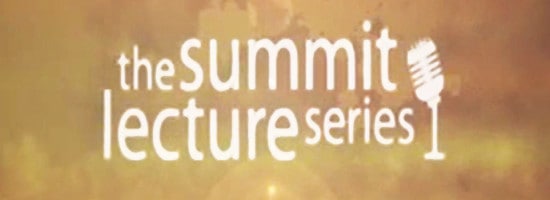
To purchase the entire DVD set of the Summit Lecture Series, visit summit.org.
There are third-world countries that have unbelievable child mortality rates. All across Africa, India and other poverty-stricken nations around the globe, there are populations where a majority of the children born die before they reach their one-month-birthday, typically from malnutrition and disease. ONE MONTH!
But, does it follow that those children who die within a month are less human than those of us who live longer?
It simply doesn’t follow that if I die sooner rather than later that I wasn’t fully human or that you may deliberately kill me for that reason. This is a bogus argument!
Another common argument from people on the pro-choice side, such as Ellen Goodman, is this:
You’re in a burning research lab. The building is ablaze. In one corner of the lab is a vial of frozen embryos. In the distant, opposite corner is a newborn baby. You only have time to save either the embryos or the newborn. Which are you going to save?
And, of course, everyone knows that we would save the newborn.
Their response is often this: Aha! Even you don’t believe that the embryos are fully human. Because if you did, you would at least consider saving the embryos, but you don’t.
Wait. Let’s think about this for a moment. How does it follow that because I save one human over another, that the ones I left behind weren’t fully human?
For example: If I were in a building full of students and, like the lab, it was on fire. And, let’s say I had the choice of saving a room full of students, or my eleven-year-old daughter. Who is going to fry? Of course, the room full of students.
But that doesn’t make the students less human than my daughter simply because I chose to save her and not them.
Critics of the pro-life position want us to believe that because we would save the newborn in the lab, those we leave behind are not fully human. But that’s simply not logical. And, by the way, why is this a dilemma at all unless both are fully valuable? If they weren’t, then there would be no debate at all over who to save.
And, both of these examples are in regards to whom we should save. It’s not about who we get to kill, so the analogy falls apart on so many different fronts. Going back to the room full of students, I’m going to save my daughter first, but I’m not going to shoot the students on the way out.
The Science of Embryology is clear, from the earliest stages of development, that the unborn are distinct, living, whole human beings.
Another reason why this is tough for people to hear and come to terms with is this: they don’t want to hear the science, because they have a vested interest in abortion, either because they have personally experienced abortion, or they want it to remain legal for some reason.
So, how do we reach people who think abortion is a mere preference like choosing chocolate over vanilla?
One way is to give them a chance to view what is actually at stake.
If you remember the movies “The Passion of the Christ”, “Saving Private Ryan”, or “Schindler’s List”, you surely remember films that are very graphic, but many teachers use them because they convey truth in a way that no words ever could. When you saw “The Passion of the Christ”, and witnessed over 90 minutes of unbelievably graphic violence, you understood what our Lord suffered in a way you would not have understood if you just read about it.
The same is true with abortion.
There are people who will not understand what is at stake until they see it. And when they see it, everything changes.
But, know this… our job, as Christ-followers, is NEVER to beat up on people who may have had an experience with abortion. It’s very possible that somebody watching, hearing or reading this right now has experienced this. And for someone in those shoes to even hear or read these words is tough. But I’m not here to beat up on anyone, and this is why: Because I am a believer in the Gospel of Jesus. That Gospel, or truth, puts every single one of us on the same footing before the bar of God’s justice.
God created our race to worship and enjoy Him forever. But we rebelled against our Creator, set ourselves up as god, and God – who had the right to destroy us for our rebellion – sent Jesus to bare in full His wrath against sin.
I call this incredibly good news! This means that you and I don’t get what we deserve because a sinless substitute stood in our place, condemned for our guilt. That’s very good news for women and men who have experienced abortion. And it’s good news for friends of yours who are trying to get rid of their guilt-ridden past; and the only solution to that guilty past is the blood of Jesus shed on their behalf.
That’s good news!